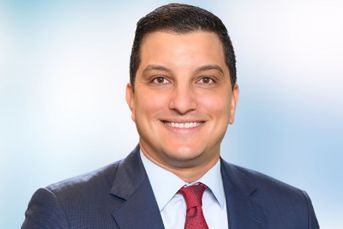Merrill Lynch advisers should expect current pay grid to stay in place for 2020

After two years of changes to focus on adding clients, the firm intends to stand pat.
After two years of taking a carrot-and-stick approach to induce brokers to sign up new clients, Merrill Lynch intends to stand pat going into 2020 and make no major changes to its compensation plan.
In late 2017, Merrill Lynch revised its pay grid for the following year to reward advisers who bring in a healthy number of net new accounts, while those who fell short of the goals were to see compensation cut.
As 2018 drew to a close, the firm overhauled those plans, increasing the number of news households that advisers needed to do business with to qualify for the awards plan, dubbed internally as the “growth grid.”
Advisers need not brace for such changes again this year, according to a senior executive from Merrill Lynch.
“We are not anticipating compensation changes going into 2020” after making relatively significant changes the past two years, said the executive, who was speaking to reporters Wednesday morning on a conference call and asked not to be named. “It’s going to be boring this year.”
The four big Wall Street banks, with more than 50,000 financial advisers and brokers, typically tinker with compensation plans each year in an attempt to focus advisers more specifically on different aspects of the business, from sales to referrals.
Results at Merrill Lynch indicate that the changes in adviser pay have taken hold.
Its parent, Bank of America Corp., reported Wednesday that Merrill Lynch advisers had brought in more than 35,000 new households over the first half of the year, an all-time high and more than 10 times the number they brought in during the same period two years ago, before the growth grid plan was put in place.
Not all the advisers at Merrill Lynch are enamored with the growth grid, and that may be why the firm is not increasing the number of new households advisers need to sign up to earn extra compensation.
“Merrill Lynch has recently been losing some advisers, so it’s not surprising they are not touching the grid for next year,” said Casey Knight, executive vice president and managing director at ESP Financial Search, a recruiting firm.
Meanwhile, Bank of America is considering creating a subscription service for Merrill Edge, according to an online report Tuesday by industry publication Financial Planning that cited Merrill Lynch executive Teron Douglas, head of digital capabilities at Merrill Edge.
Charles Schwab earlier this year said that it was moving from an assets-under-management fee to a flat monthly charge for its robo adviser, sending shock waves throughout the industry.
The senior executive from Merrill Lynch added nothing to Mr. Douglas’ comments regarding making a move similar to Schwab.
“We’re continuingly evaluating our pricing strategies,” the executive said. “We do not have a subscription pricing model in place today, and I’m not in a position to add to the comments made yesterday.”
Merrill Lynch adviser headcount of 14,690 is down less than 1%quarter-to-quarter and year-over-year, the company reported.
The headcount of Merrill Edge advisers, who are paid a salary rather than from a grid, increased by 96 the first half of the year to 2,818.
Learn more about reprints and licensing for this article.








